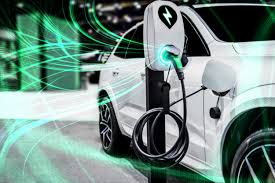Introduction: Understanding Electric Car Batteries
in this article we discuss about the do electric cars have reserve battery.Electric cars are revolutionizing the automotive industry, offering a cleaner and more sustainable alternative to traditional gasoline-powered vehicles. At the heart of this innovation are the electric car batteries, which power these vehicles with electricity stored in rechargeable battery packs. Understanding how these batteries work and the features they offer is crucial for appreciating the advancements and limitations of electric vehicles.
What is a Reserve Battery in Electric Cars?do electric cars have reserve battery
A reserve battery, in the context of electric cars, refers to an additional power source or a reserved portion of the main battery that is intended to provide extra mileage when the primary charge is depleted. This concept is akin to the “reserve” fuel tank in traditional gasoline vehicles, which offers some leeway when the main fuel supply runs low.
Do Electric Cars Actually Have a Reserve Battery?
Do electric cars have a reserve battery in most electric cars, there isn’t a separate physical reserve battery. Instead, the car’s battery management system (BMS) typically holds back a small portion of the battery’s total capacity to serve as a buffer. This hidden reserve helps prevent the battery from completely draining, thus offering drivers a safety net to reach a nearby charging station
Range Anxiety and Reserve Battery Concepts
Range anxiety—the fear that a vehicle has insufficient range to reach its destination—is a common concern among potential electric car buyers. To alleviate this anxiety, automakers design electric cars with various features, including the reserve battery concept. By reserving a portion of the battery’s capacity, drivers are reassured that they have a buffer to rely on, reducing the stress of potentially running out of power.
Battery Management Systems in Electric Cars
Battery Management Systems (BMS) play a crucial role in the performance and safety of electric car batteries. The BMS monitors the battery’s state, manages the charging process, and ensures that the battery operates within safe limits. It also controls the reserve capacity, ensuring that there is always a small amount of charge left to prevent complete depletion, which can damage the battery and leave drivers stranded.
Emergency Features and Power Conservation
Electric cars are equipped with various emergency features designed to conserve power when the battery is running low. These features can include reducing the car’s speed, limiting the power output, and turning off non-essential systems like air conditioning. Such measures extend the vehicle’s remaining range and give drivers more time to reach a charging point.

Comparing Reserve Battery Concepts with Traditional Fuel Reserves
The reserve battery concept in electric cars is somewhat different from the traditional reserve fuel tanks in gasoline vehicles. While traditional cars switch to a separate reserve tank, electric cars typically reserve a portion of the main battery. This approach is more efficient and integrated, allowing for seamless transition and continued operation without the need for a separate physical reserve unit.
Real-World Applications and User Experiences
Real-world applications and user experiences provide valuable insights into the effectiveness of reserve battery concepts. Many electric car users appreciate the peace of mind provided by the reserved battery capacity. Testimonials often highlight how this feature has helped them avoid being stranded, especially in areas with sparse charging infrastructure. Stories from users can illustrate the practical benefits and limitations of current reserve battery systems.
Technological Innovations and Future Developments
Technological innovations continue to improve the capabilities of electric car batteries. Advances in battery technology, such as increased energy density and faster charging times, are on the horizon. Future developments may include more sophisticated reserve battery management, potentially integrating artificial intelligence to predict and optimize reserve usage based on driving patterns and conditions.
Conclusion: The Future of Reserve Batteries in Electric Cars
The concept of reserve batteries in electric cars is evolving, offering an important safety net for drivers concerned about range. As technology progresses, we can expect even more efficient and intelligent battery management systems that further mitigate range anxiety and enhance the overall user experience. The future of electric vehicles looks promising, with continuous improvements ensuring they remain a key component of sustainable transportation.

